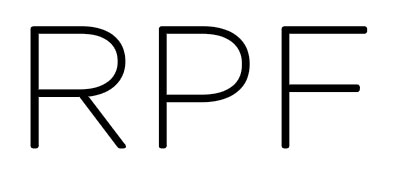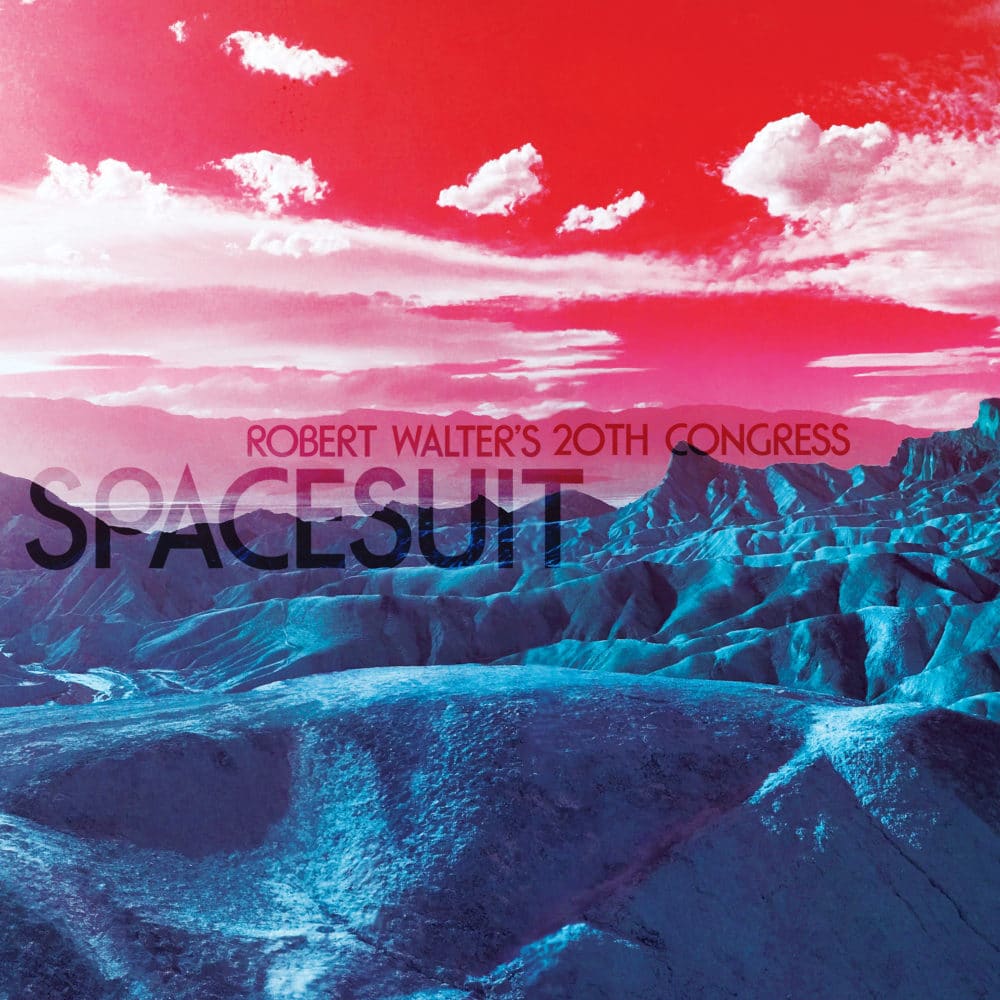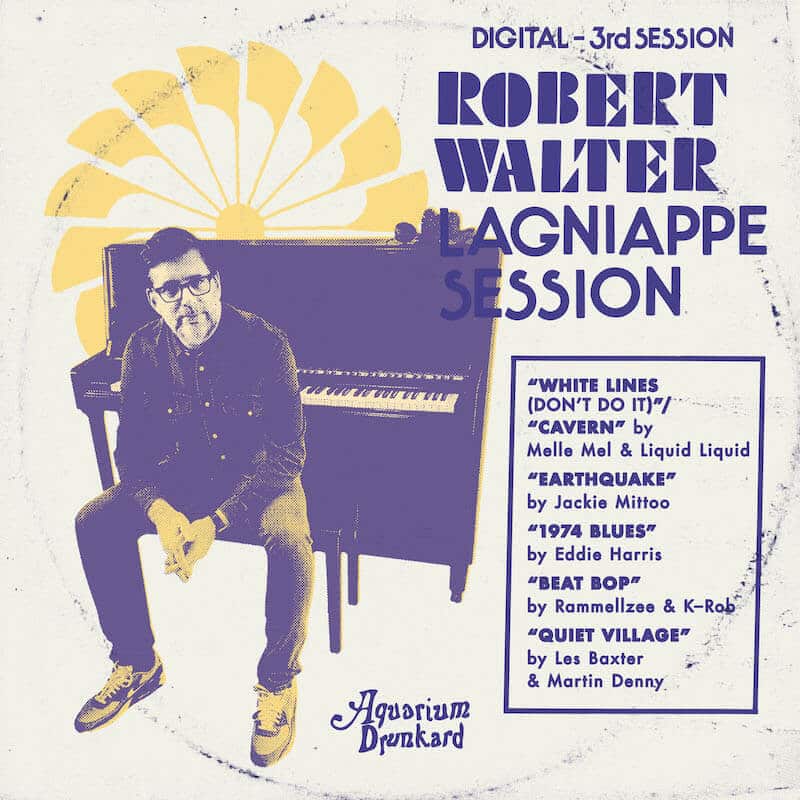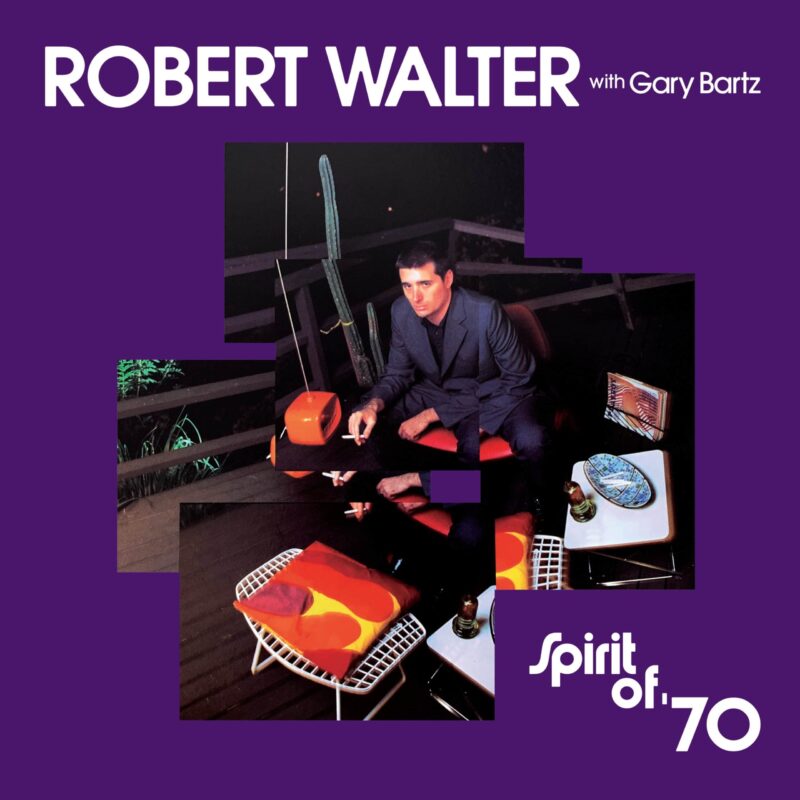Every time organ master and keyboard virtuoso Robert Walter reconvenes his 20th Congress, he delves deeper and deeper into the wellspring of his most formative influences: hip-shaking vintage soul, window-rattling ‘60s-‘70s funk, and the sounds of classic organ jazz. However, for his latest outing, ‘Spacesuit’ (due September 21st on The Royal Potato Family), Walter switched his source of inspiration from digging through the crates to gazing speculatively skyward, imagining new worlds rather than emulating classic records. The results lose none of the explosive funk and soul grooves that Walter has become known for (whether leading his own bands, as a founding member of The Greyboy Allstars, or touring with Phish bassist Mike Gordon) and it takes those sounds into outer space, blending inspiration from science fiction movies, comic books and art with wide-ranging influences encompassing everything from Dub Reggae to Krautrock to early jazz-rock fusion.
“I wanted to break myself out of writing music about music,” Walter says. “I remember when I was a kid I loved all the mysterious qualities about science fiction, comic books and movies. I started looking at those kinds of things, trying to find something to get influenced by other than musical genre worship.”
To venture into this more expansive sonic territory, Walter has assembled a new crew of brilliant improvisers and genre-bending virtuosos under the 20th Congress mantle. Drummer Simon Lott (Kool Keith, Charlie Hunter) is a longtime collaborator who brings a refreshing unpredictability anchored in deep-rooted New Orleans rhythms. Bassist Victor Little (Billy Preston, Charlie Musselwhite) started sitting in with the band on a series of west coast gigs and gradually became essential to the evolving sound. Guitarist Chris Alford (Cassandra Wilson, Mike Dillon) has worked extensively with Lott in New Orleans, bringing a baked-in chemistry that has mutated into the infectious sound of this incarnation of the 20th Congress.
The quartet’s exploratory ethos was honed on the road and the combination transformed Walter’s earlier material in unexpected but always thrilling ways. “When we started playing the old tunes on tour, the guys would really depart from what was on the record,” Walter says. “Things started to go left and really stretch out so I figured I should write in a way that doesn’t force people into a box. I tried to create launch pads for us to go somewhere.”
A brilliant improviser with a gift for riveting hooks and unstoppable grooves, Walter set out to create songs that blur the line between the composed and the spontaneous; an album with a narrative arc that isn’t tethered to concrete ideas. He uses a full arsenal of keyboards, synths and electronics and draws together the varied aspects of his career, from his film soundtrack work with Michael Andrews to his free-ranging improvisational excursions with the likes of genre jugglers like Marco Benevento, Skerik and Mike Gordon.
A major inspiration for creating this material was Jodorowsky’s Dune, the 2013 documentary about the jaw-dropping sci-fi epic that never was. The Chilean filmmaker Alejandro Jodorowsky, known for his cult mind-benders El Topo and The Holy Mountain, had planned a version of Frank Herbert’s Dune that would have starred Mick Jagger, Orson Welles and Salvador Dalí, with concept art by H.R. Giger and Chris Foss and music by Pink Floyd and Magma. The idea of a spectacle that only exists in the mind’s eye appealed to Walter who has long strived to create albums that could be a buried treasure from some imagined—but almost real—past.
‘Spacesuit’ suggests a discovery that could come from 1972 or 2072, or either one as imagined by the other. From the simmering Rhodes funk of “Nerva And Dumbo,” (named for a pair of experimental NASA rockets), through the Kubrickian synth-pop of “Posthuman,” into the blistering intensity of “13th Key” to the atmospheric airiness of “Emanate;” beyond the alternate-universe finger-snapping soul of “Chalk Giant,” into the dub sounds of “Current Futures,” and ending with the anthemic, neon-80s colored “Most of All of Us;” ‘Spacesuit’ is a journey, albeit one that leaves the details to the listener’s dazzled imagination.
“I always want to make the record that I wish I found going through the record stacks,” he says. “I love the idea of trying to create an imaginary film or a record from 1972 that you wish you could buy.”
‘Spacesuit’ vigorously fulfills that desire: evocative enough to conjure epic cinematic adventures into the imaginary with unforgettable melodies and undeniable grooves that would exhilarate the most discerning of crate-diggers. It may be years before it becomes vintage, but it’s a rousing discovery today.






